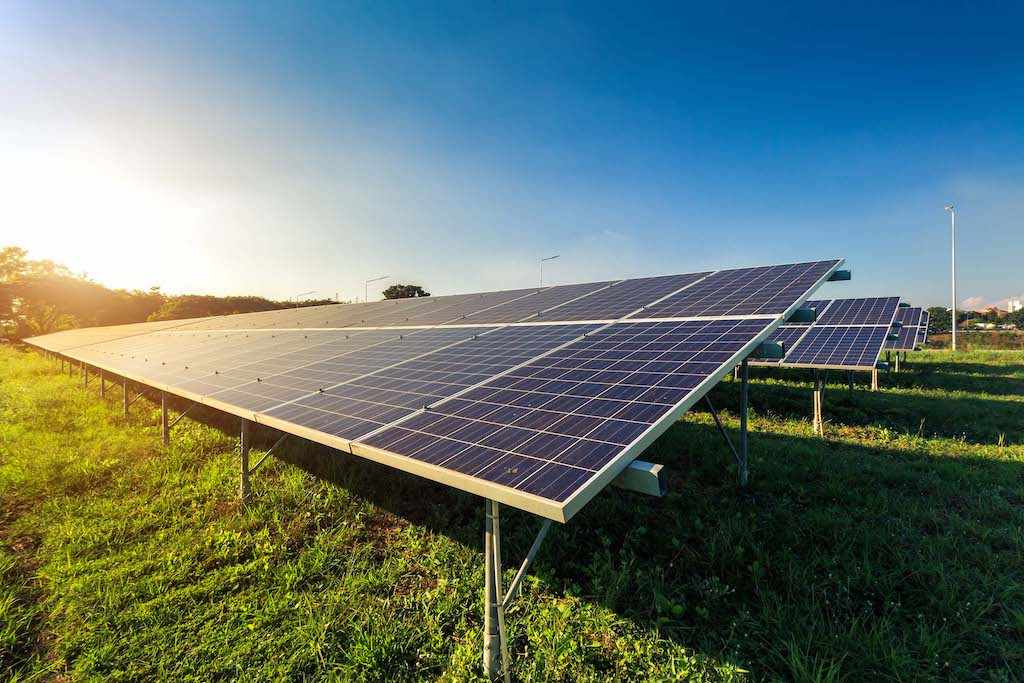Popular Reads
Top Results
Can't find what you're looking for?
View all search resultsPopular Reads
Top Results
Can't find what you're looking for?
View all search resultsRI, UNDP, South Korean aid agency launch solar power plant project in four provinces
ACCESS Project will install 23 communal solar power systems with a total power of 1.2 megawatts (MW) in 23 villages in West Sulawesi, Southeast Sulawesi, East Nusa Tenggara and Central Kalimantan by 2023.
Change text size
Gift Premium Articles
to Anyone
T
he government and the United Nations Development Programme (UNDP) Indonesia launched on Thursday an US$18 million project to provide solar power systems to rural communities in four provinces across the country.
The project, called ACCESS Project, will install 23 communal solar power systems with a total power of 1.2 megawatts (MW) in 23 villages in West Sulawesi, Southeast Sulawesi, East Nusa Tenggara and Central Kalimantan by 2023.
The Korea International Cooperation Agency (KOICA) Indonesia, which handles South Korea’s official development assistance, has agreed to fund the project with a grant.
Sophie Kemkhadze, the deputy resident representative of UNDP Indonesia, said in a virtual talk on Thursday that the project would contribute to the achievement of the UN’s Sustainable Development Goals (SDG) as it entered the final decade of meeting the goals.
“So, ACCESS Project is a beacon of important contribution to SDGs for both Indonesia and Timor Leste, not only because it addresses one particular goal for SDGs, which is access to global energy, or because it contributes to the agenda of environment and climate, but also because it addresses so many different goals,” Sophie said.
ACCESS project is in line with the government’s agenda as it seeks to raise the share of regions that have access to electricity, called electrification ratio, to 100 percent from around 99 percent today. The last one percentage point equals 5 million people, according to an estimate by the Indonesian Energy Ministry.
The project also takes place in neighboring Timor Leste, where the country’s State Administration Ministry and KOICA local branch will install 1,000 highly effective solar lamp systems in 25 villages across three municipalities and develop 11 solar water pumping systems.
Verania Andria, a senior advisor for sustainable energy at UNDP Indonesia, said the project would provide access to electricity for 20,000 people and access to clean water for 3,500 people in total from the selected regions in both countries.
“The locations [in Indonesia] are based on regional administrations’ proposal to the [Indonesian energy ministry] to get small-scale energy. But due to the government’s budget constraints, they have yet to get an allocation. Thus, ACCESS supports the villages that have not received any funds,” Verania said.
The project will also train and certify 80 people to operate the solar power systems and establish 33 renewable energy service enterprises at the local level.
Verania also said that at the end of the year, the project would be open for bids from companies wanting to develop the solar power systems, aiming to finish construction by 2021 and start conducting the certification program in 2022.
Harris Yahya, the director of renewable energy at the Energy and Mineral Resources Ministry, said the government was facing challenges to provide electricity to rural communities because they were far from urban centers. The people also did not live close to each other, making it expensive to expand electrical grids.
The government is planning to overcome these challenges by developing a portable device called Talis, which can store enough power to light a house with three LED light bulbs for up to six days. It works like a portable charger for mobile devices, according to Harris.
“It needs charging and there will be a charging center,” said Harris. “That is the model that we will develop.”










